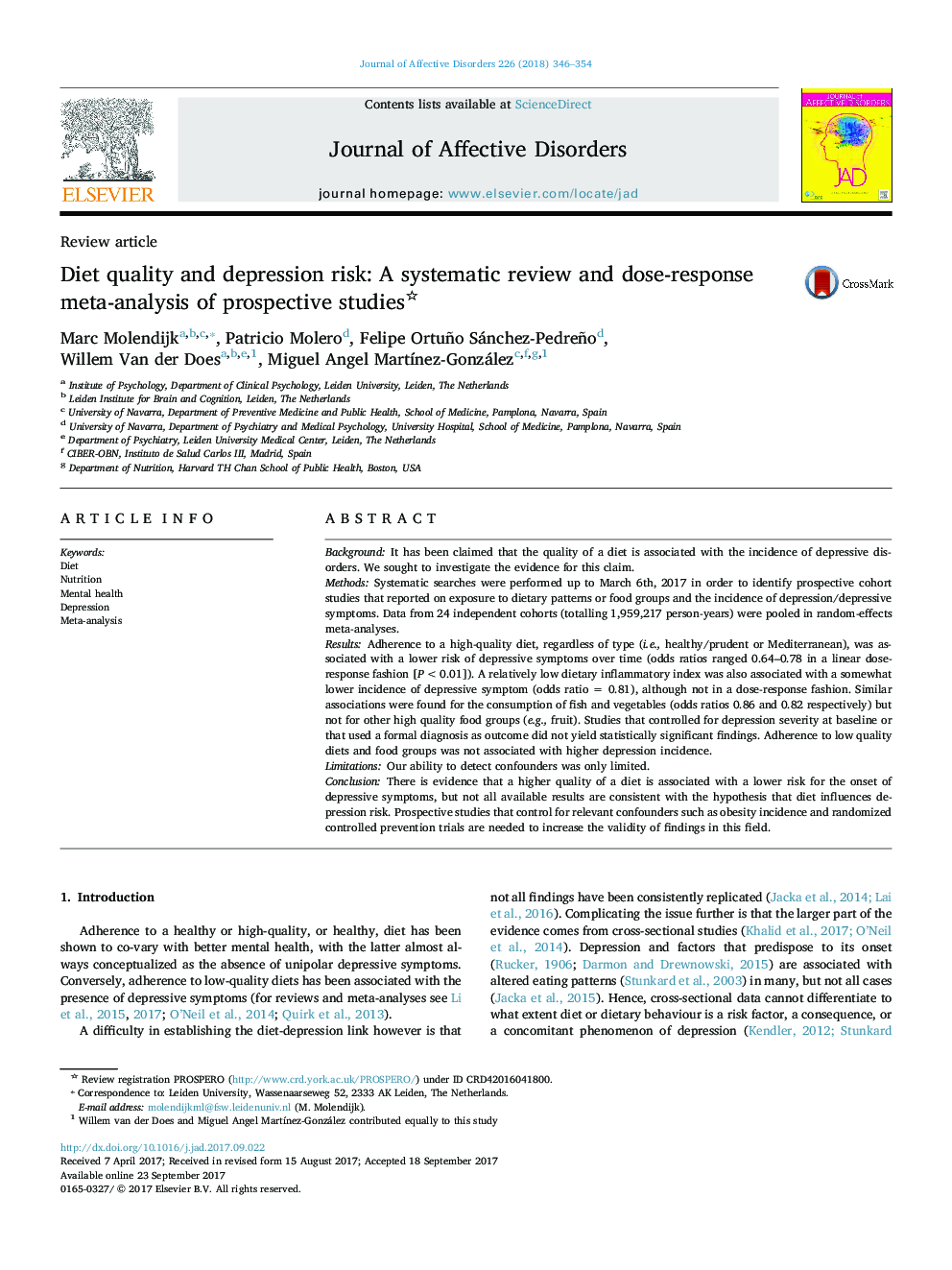| کد مقاله | کد نشریه | سال انتشار | مقاله انگلیسی | نسخه تمام متن |
|---|---|---|---|---|
| 5721674 | 1608099 | 2018 | 9 صفحه PDF | دانلود رایگان |
- Adherence to a healthy diet is associated with a somewhat lower depression risk.
- This association is evident at the level of depressive symptoms, not at the diagnostic level.
- This association is not evident when baseline depressive symptoms are controlled for.
- Adherence to an unhealthy diet or food groups is not associated with depression incidence.
BackgroundIt has been claimed that the quality of a diet is associated with the incidence of depressive disorders. We sought to investigate the evidence for this claim.MethodsSystematic searches were performed up to March 6th, 2017 in order to identify prospective cohort studies that reported on exposure to dietary patterns or food groups and the incidence of depression/depressive symptoms. Data from 24 independent cohorts (totalling 1,959,217 person-years) were pooled in random-effects meta-analyses.ResultsAdherence to a high-quality diet, regardless of type (i.e., healthy/prudent or Mediterranean), was associated with a lower risk of depressive symptoms over time (odds ratios ranged 0.64-0.78 in a linear dose-response fashion [P < 0.01]). A relatively low dietary inflammatory index was also associated with a somewhat lower incidence of depressive symptom (odds ratio = 0.81), although not in a dose-response fashion. Similar associations were found for the consumption of fish and vegetables (odds ratios 0.86 and 0.82 respectively) but not for other high quality food groups (e.g., fruit). Studies that controlled for depression severity at baseline or that used a formal diagnosis as outcome did not yield statistically significant findings. Adherence to low quality diets and food groups was not associated with higher depression incidence.LimitationsOur ability to detect confounders was only limited.ConclusionThere is evidence that a higher quality of a diet is associated with a lower risk for the onset of depressive symptoms, but not all available results are consistent with the hypothesis that diet influences depression risk. Prospective studies that control for relevant confounders such as obesity incidence and randomized controlled prevention trials are needed to increase the validity of findings in this field.
Journal: Journal of Affective Disorders - Volume 226, 15 January 2018, Pages 346-354
